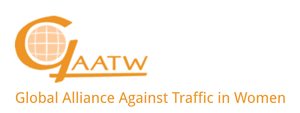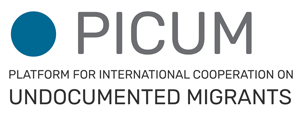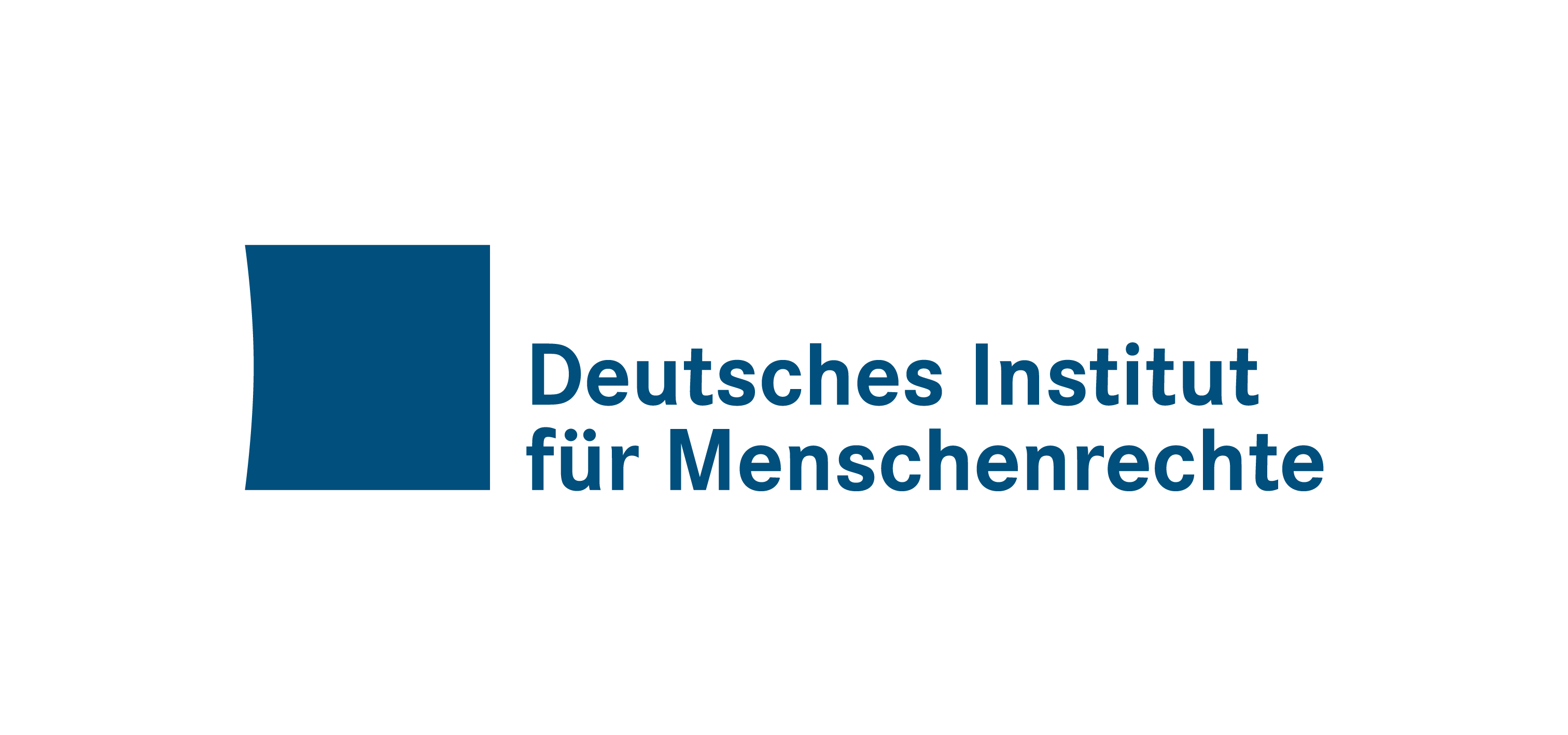Compensation
Compensation mechanisms for trafficked persons
Trafficked persons often sustain physical after-effects ? e.g. due to the consequences of violent treatment by perpetrators, a lack of healthcare or malnutrition, as well as psychological damage, such as trauma.
Many people affected by human trafficking and labour exploitation have some or often all of the wages for their work withheld (whether in the sex industry or in other fields).
Meanwhile, perpetrators derive vast profits from the activities trafficked persons perform for them.
“Compensation” refers to financial redress for any damages ensuing from incurred or suffered loss.Financial redress may take the form of an indemnity (Schadensersatz), of damages for pain and injury (Schmerzensgeld) or compensation for unpaid wages.As trafficked persons suffer great harm, be it material or immaterial, it is important to provide them with adequate legal remedies so that they can effectively enforce their claim not just to wages, but also to appropriate compensation.Although Germany does provide a legal basis for compensation and the payment of unpaid wages, a whole series of reasons may prevent trafficked persons from enforcing their rights in practice.These are addressed in the feasibility study "Human Trafficking in Germany. Strengthening Victim's Human Rights", from the German Institute for Human Rights (Deutsches Institut für Menschenrechte, DIMR) and the EVZ Foundation, written by Dr. Petra Follmar-Otto and Heike Rabe, published in September 2009.The study also came to the conclusion that despite the existing legal framework, only a few trafficked persons actually managed to enforce their rights.
To improve the situation of trafficked persons, the German Institute for Human Rights is carrying out the project, “Forced labour today – Empowering trafficked persons” in collaboration with the EVZ Foundation.In place since June2 2009, it is planned for an initial period of three years.The project aims to empower trafficked persons, to encourage them to assert their rights independently and to support them (also financially) while they enforce their claims.
At a European level, the project, “COMP.ACT (European Action for Compensation for Trafficked Persons)”, which is coordinated by La Strada International and Anti-Slavery International in collaboration with 14 other project partners, is fighting to ensure that trafficked persons can assert their right to receive compensation and remuneration for their work.The project has been running since January 2010 and has funding for an initial period of three years.All project partners are carrying out research on the legal framework in their own country guaranteeing trafficked persons can claim compensation and unpaid wages, as well as on factors that may prevent them from doing so.Test cases are also due to be carried out in every country.At an international level, lobbying is also planned to raise awareness of the subject of compensation.
Action guidelines on compensation
The KOK and the German Institute for Human Rights have created a poster compiling action guidelines on compensation in collaboration with the European project COMP.ACT.The KOK’s share was financed by restricted funding from a private donor group, while the DIMR’s was funded by the EVZ Foundation as part of the project “Forced labour today” and by the European Commission as part of the programme “Prevention of and Fight against Crime”.The poster presents an overview of the rights of trafficked persons, victims of violence and labour exploitation.The poster can be downloaded as a PDF or a paper copy can be ordered free at info(at)kok-buero.de.
Leaflet on ways of compensation in Germany
KOK has, in the framework of COMP.ACT, developed a leaflet on compensation. It gives a overview on the existing possibilities for trafficked persons to receive compensation in Germany. The leaflet can be used by KOK's member organisations to inform trafficked persons about their rights. It is available as a PDF and can be downloaded in German, English, French, Bulgarian, Romanian, Polish and Hungarian.
Compensation by offenders in criminal proceedings
Consolidated civil and criminal procedure (Adhäsionsverfahren)
As trafficking in human beings is a criminal offense, trafficked persons have the option of enforcing their claims for wages and for damages before a criminal court as part of a criminal proceeding. In a consolidated civil and criminal proceeding (Adhäsionsverfahren, as stated in §§ 403 et seqq. of the German Code of Criminal Procedure/Strafprozessordnung, StPO), a criminal court can, on request of the claimant, rule on compensation claims for immaterial and material damage.This process requires that a criminal proceeding has been started, charges have been brought and the perpetrator has been convicted.The advantage of this procedure is that the civil claims of the trafficked persons can be examined during the criminal proceedings and that evidence is presented, e.g. to show that the person has suffered physical harm.
Compensation by offenders under labour law
Wage entitlement in accordance with labour law
Wage claims can be made in compliance with § 611 of the German Civil Code (Bürgerliches Gesetzbuch, BGB),as long as a work contract was concluded,either orally or in writing.The person’s residency and employment status is irrelevant.People without a residence or work permit are also entitled to use German labour courts.However, it should be noted that the immigration or tax authorities may be notified, in compliance with the reporting duties laid down in § 87 of the German Residence Act (Aufenthaltsgesetz, AufenthG), of a missing residence status of the plaintiff.This can be problematic, particularly if the plaintiff does not hold a valid residence permit.In this case, the trafficked person runs the risk of being deported or may have to fear other consequences for her/his residency status.
German labour courts have jurisdiction if either the company headquarters, the place of employment or the place where the job is to be carried out is in Germany.
In the case of civil proceedings, the plaintiff, in this case the employee, is responsible for substantiating the claim.In the case of legal action before a labour court, prima facie evidence is sufficient, i.e. if the trafficked person states her/his claims convincingly, it is for the employer to prove that there was no such employment contract.
The wages to be claimed depend on the salary paid to employees in similar positions, according to collective agreements in the sector for example.For jobs requiring no special qualifications, it can be very difficult to establish wage entitlement, as it depends e.g. on working hours and conditions.
Claims under labour law resulting from a breach of the employment contract by the employer
If, in a case of breach of an employment contract on the part of the employer, any further damage has ensued, the employee may claim financial compensation in accordance with §§ 280, 249 et seqq. of the German Civil Code.Compensation may be paid to compensate unpaid wages or lost leave days, or it may take the form of an injury pension or cover the costs of therapy or treatment.In accordance with § 2 para. 1 Labour Court Act (Arbeitsgerichtsgesetz. ArbGG), these rights can also be asserted before a labour court.
Civil claims resulting from torts
Civil claims can be made, as stated in § 823 I of the German Civil Code (BGB).In accordance with § 823 I BGB, any person who, intentionally or negligently, unlawfully injures the life, body, health, freedom, property or another right of another person is liable to compensate the other party for the damage arising from this.As the objects stated enjoy special protection, no employment contract is required for the enforcement of § 823 I BGB.
Moreover, redress can also be claimed, as specified in § 823 II BGB.§ 823 II BGB compels any person guilty of having violated a law protecting other persons to make compensation.
In accordance with § 253 II BGB, financial compensation may be claimed for any injury to body, health, freedom or sexual self-determination.
Claims to compensation from the state: theGerman Crime Victims Compensation Act (Opferentschädigungsgesetz, OEG)
The Federal Social Court of Germany (Bundessozialgericht, file number: 9 RVg 2/78) has ruled that the state has a duty towards all its citizens to protect them from any acts of violence or criminality.If the state fails to do so, it is compelled to pay compensation to victims.This type of compensation is laid down in the German Crime Victims Compensation Act (OEG) (link in German).
Legal instruments at European level
Directive providing for minimum standards on sanctions and measures against employers of illegally staying third-country nationals(2009/52/EG)
The Directive requires Member States to prohibit the employment of non-EU nationals without a legal residence status. It lays down common minimum standards on sanctions against employers who infringe the regulation.In accordance with Article 16, Member States must ensure that the persons can assert their claims, and guarantee that they also actually receive the money claimed.Member States are also called upon to assess adequate authority's services to support anybody needing to press charges against an employer to claim any outstanding remuneration.
This Directive on sanctions was implemented in Germany as part of the 2nd Directive Implementation Act (2. Richtlinienumsetzungsgesetz).The KOK has issued a statement (in German only) including detailed information.
Directive on preventing and combating trafficking in human beings and protecting its victims (2011/36/EU)
The concept of trafficking in human beings has been broadened by this Directive to include other activities, such as begging.Trafficked persons shall be supported and counselled, regardless of their readiness to cooperate in criminal proceedings, and shall receive legal advice and representation.As laid down by Article 17, Member States shall also ensure that those affected by trafficking in human beings have access to compensation schemes for victims of violent crime.
The Directive was enacted on April 5 2011.All Member States (including Germany) have two years to transpose the Directive into national law.
The KOK has also issued a statement (in German only) on this Directive.
2005 Council of Europe Convention on Action against Trafficking in Human Beings (CETS No.: 197)
The Convention includes all forms of trafficking in human beings and focuses mainly on protecting victims, but also on prosecuting traffickers.In accordance with Article 15, each party shall provide, in its internal law, for the right of victims to compensation from the perpetrators and ensure that all trafficked persons receive compensation, for instance by establishing a victim compensation fund.
Germany has signed the Convention and is currently ratifying it.The KOK has issued a statement (in German only) on the draft legislative proposal implementing the Directive.
Other international legal documents
· 1957 Convention No. 105 on the Abolition of Forced Labour by the International Labour Organisation (ILO)
All ratifying states commit themselves to forbidding forced labour under any form. Germany has ratified the Convention.
· 1990 UN Convention on the Protection of the Rights of All Migrant Workers and Members of Their Families – Convention on Migrant Workers
This Convention lays down the rights of migrant workers and their families, regardless of their residence status.Germany has not ratified the Convention.
· Supplementary Protocol to Prevent, Suppress and Punish Trafficking in Persons, Especially Women and Children to the 2000 UN Convention against Transnational Organised Crime – Palermo Protocol
In addition to the first international legally binding definition of trafficking in human beings, the Convention includes provisions for victim protection and international cooperation.Germany has ratified the Convention.
· 1979 UN Convention on the Elimination of All Forms of Discrimination against Women – CEDAW
The signatories condemn the discrimination of women under any form and commit themselves to promoting gender equality.Germany has ratified the Convention.










